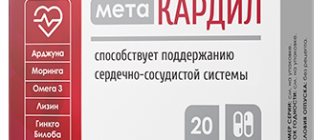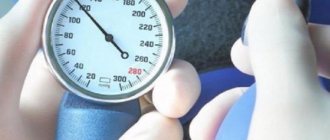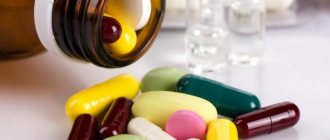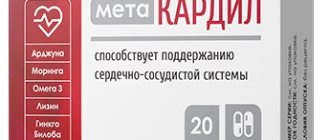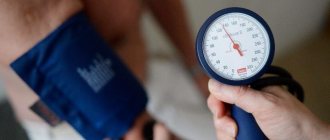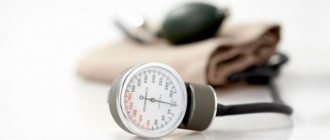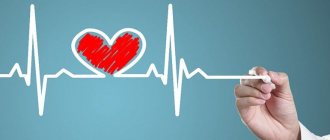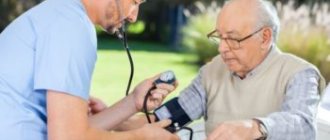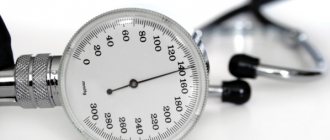Taking medications to reduce high blood pressure is helpful. However, they often don't work as well as they should. So why doesn't blood pressure drop after taking the pills? It turns out there are several reasons for this. For example, many people who suffer from this disease and take special medications lead unhealthy lifestyles. They smoke cigarettes, drink alcohol and eat unhealthy foods, thereby reducing the effect and effectiveness of treatment. Hypertension cannot be completely cured; patients take medications throughout their lives. To avoid serious complications, you must follow your doctor's instructions.
Basic antihypertensive drugs
It is impossible to list here all the drugs intended for people suffering from arterial hypertension. However, to better understand the problems of cardiology, it is worth considering some antihypertensive drugs.
Heart attacks and strokes account for approximately 70% of deaths on Earth. A blockage in the heart or arteries in the brain kills seven out of ten people. Almost all seven are caused by surges in blood pressure associated with hypertension.
It is imperative to combat high blood pressure. This, of course, does not cure the disease, but only helps to achieve normal levels.
The first line presents the most popular and effective drugs with which you can start therapy:
- Enap, Lisinopril, Captopril, Moex. These tablets belong to the group of ACE inhibitors (angiotensin-converting enzyme). Their main properties are the expansion of peripheral vessels. They do not depress the heart and are therefore safely prescribed to cardiac patients.
- Hypothiazide, Indap, Veroshpiron. They belong to the category of diuretics. They increase the amount of urine produced, which helps lower blood pressure. Prescribed together with drugs of the first group.
- Atenolol, Betakor, Bisoprolol, Nebilong. These are beta blockers. They act on the receptors of the heart muscle, reducing cardiac output. Helps patients suffering from angina and arrhythmia.
- Lozap, Irbetan, Vazar. They fall under the category of angiotensin II receptor inhibitors. These are new drugs that provide a 24-hour antihypertensive effect. Unlike drugs in the 1st position, they have no side effects - no dry cough.
- Verapamil, Diltiazem, Amlodipine. Included in the category of calcium channel antagonists. They are distinguished by the fact that after taking them, the face turns red, the heart rhythm is disturbed, and a headache appears.
Based on the drugs listed above, combination drugs have been developed, such as Enap-N, Triampur, Tonorma, Liprazide, etc. Many of them contain a diuretic, which is responsible for reducing the amount of fluid in the human body. Second-line medications are prescribed by doctors if a patient experiences serious side effects or if the patient cannot tolerate taking first-line pills. Often the reason for choosing these drugs is the lack of financial resources, because not every patient can buy expensive drugs for the rest of his life.
So, the list of second-line drugs includes:
- Prazosin, Phentolamine. They belong to alpha-blockers. After taking them, complications such as strokes and heart failure often occur. The undoubted and only plus is the reduction of cholesterol. Very rarely prescribed.
- Rutherpine, Raunatin. It belongs to the group of rauwolfia alkaloids. They are cheap but have many side effects. Doctors do not recommend them to their patients. However, some hypertensive patients self-medicate and continue to buy it.
- Clonidine, Methyldopa, Dopegit. Part of the alpha2-agonists. They affect the central nervous system. Their use is characterized by drowsiness, lethargy, and headaches. Methyldopa and Dopegyt are often prescribed to pregnant women because they are safe for unborn children.
- Dibasol, Apressin. These drugs are included in the group of direct-acting vasodilators. They dilate blood vessels, so the effect of their use is immediate. However, prolonged administration leads to insufficient oxygen supply to the brain. Mainly used as a one-time injection when emergency care is required.
Warning. Only cardiologists prescribe the dose and treatment plan. Do not choose a medicine for yourself as the wrong medicine is the reason why the pills do not work properly.
How to treat hypertension?
Treatment of hypertension begins with determining blood pressure levels. As a rule, the doctor prescribes:
- daily blood pressure measurements at home;
- keeping a blood pressure diary;
- 24-hour blood pressure monitoring.
The next stage of treatment is lifestyle correction, namely:
- normalization of body weight;
- limiting the consumption of table salt;
- increased physical activity;
- giving up bad habits (smoking, alcohol).
In some cases, this is enough to normalize blood pressure and drug therapy is not required.
But if no positive result is observed within 12-16 weeks, then, based on the data obtained, the doctor selects antihypertensive treatment. There are several main groups of drugs that are used in the treatment of arterial hypertension:
- ACE inhibitors;
- beta blockers;
- calcium antagonists;
- diuretics.
Rules for selecting medications for high blood pressure
It should be understood that medications will not help those people who do not want to change their lifestyle, continue to smoke cigarettes, drink alcohol, eat unhealthy food, and exercise little.
Medicines are selected only by doctors; they take into account the patient’s age and the mechanism of disease progression, which is of two types:
- Blood vessel. The development of hypertension is the result of prolonged vasoconstriction, forcing blood to circulate through narrowed vascular channels. The tablets are prescribed with the understanding that the effect of the drug will be relaxing and the blood vessels will dilate as the process progresses.
- Kidneys. Because the kidney tubules do not filter sufficiently, fluid is retained and the amount of blood circulating in the body increases. With this mechanism, it is not surprising that swelling occurs inside and outside the body. Vasodilator tablets are useless in this case. Effective treatment is achieved with drugs that can normalize kidney function.
When choosing a drug, doctors take into account changes occurring in the patient’s organs. They are trying to prescribe a drug that will ease the symptoms of hypertension and have a therapeutic effect on the affected body systems, preventing further development of the pathology.
The main rule in the treatment of hypertension
The main rule when treating hypertension is not to listen to the advice of friends, neighbors or relatives who are already taking any medications to treat this disease!
The choice of drug for the treatment of arterial hypertension is the prerogative of the doctor.
It takes into account the clinical picture of a particular patient, his concomitant diseases, side effects of the drug and its mechanism of action, contraindications of a particular drug. All patients are different, and each requires an individual approach. What suits one person will not always suit another. Only a doctor can prescribe, cancel or replace a drug.
Causes of high blood pressure after taking antihypertensive drugs
If a patient takes only part of the prescribed pills and skips them, blood pressure does not fall and as a result remains high. When returning to the attending physician for a consultation, a person usually always asks for another medicine. To avoid serious problems, it is important to follow your doctor's instructions carefully.
In patients taking medications, it is also considered a non-lowering factor for blood pressure. Birth control, painkillers, or anti-inflammatory pills should not be taken at the same time. They nullify the effect of antihypertensive drugs.
Insufficient effectiveness of medications
According to the mechanism of treatment with antihypertensive tablets, they are divided into two groups. From the first drugs they are prescribed more often, after taking them a more pronounced effect is observed. The human body is individual, so it is necessary to be under the supervision of a specialist for at least 2 weeks. This will allow him to understand the dynamics of the disease and evaluate the effect of the drug. If he deems it necessary, he will prescribe other pills.
There are often times when the medications you choose are good for lowering your blood pressure, but now they no longer help. This is due to the transition of arterial hypertension to the next phase or the development of concomitant pathology. To find out the cause, it is necessary to conduct a comprehensive examination.
Pheochromocytoma
This concept is used when detecting a disease of the adrenal glands, which is accompanied by increased production of adrenaline and norepinephrine. Excess of these hormones increases blood pressure.
This process is accompanied by symptoms such as:
- sudden attacks of fear and panic;
- increased sweating;
- cardiopalmus;
- dry throat;
- headache;
- heat.
This condition is too dangerous, because hemorrhage cannot be ruled out.
Wrong combination of drugs
In case of ineffective treatment, it is assumed that the therapy carried out by the doctor is incorrect. After taking pills, the effect of some neutralizes the effect of others. Nonsteroidal anti-inflammatory drugs do not combine with blood pressure medications. They also should not be taken with oral contraceptives.
To prevent such problems, the doctor should be informed about all medications taken by the patient.
Salt retention in the body
All people with hypertension need to know that consuming large amounts of salt leads to an increase in blood, which in turn causes swelling and a constant increase in blood pressure. Salt retention in the body can be caused by kidney problems. It is these organs that are responsible for the enzyme that secretes salt. When there is not enough of it, fluid accumulates, causing abnormal pressure. In such cases, diuretics are prescribed.
This information is an excellent reason for a comprehensive examination of the patient. This pathology helps to identify kidney pathology using ultrasound.
What is hypertension?
Hypertension (also known as essential hypertension) is a persistent increase in blood pressure above the limit of 139/89 mmHg. Art. in people not receiving antihypertensive treatment. An increase in blood pressure has a negative effect on the body, which leads to disruption of the heart, brain, kidneys, vision, and changes in blood vessels. These organs are the targets of this disease, and, depending on their damage, there are 3 stages of hypertension .
initial stage
At this stage, the pressure rises irregularly, quickly normalizes on its own without taking medications, while other organs (target organs) are not affected.
Stable increase in blood pressure
At this stage, blood pressure can only be reduced with medications. In this case, damage to one or more target organs appears.
Stage of pronounced changes
Blood pressure is persistently elevated. Target organs are affected. There may be complications such as stroke, heart attack, etc.
Also, there is such a thing as “degree of arterial hypertension”, it reflects the level of pressure rise.
There are 3 degrees of arterial hypertension
1st degree: 140-159/90-99 mmHg. Art.
2nd degree: 160-179/ 100-109 mmHg. Art.
3rd degree: 180/110 mmHg. Art. and higher
What to do if the pressure does not decrease and how to provide first aid
When the pressure does not drop, all therapy is reviewed, additional diagnostics are carried out, and lifestyle is adjusted.
As part of emergency assistance, the following actions are performed at a consistently high speed:
- The patient lies horizontally or in a sitting position, the head should be elevated;
- medications prescribed by a doctor are administered;
- blood pressure is measured every quarter of an hour and a medical team is called;
- for chest pain or angina pectoris, nitroglycerin is placed under the tongue; if it continues, it is a heart attack;
- In case of severe anxiety, the patient will be helped by valerian, Corvalol, Valocordin.
Drowsiness, weakness and dizziness are often signs of a stroke.
Other methods: how to lower blood pressure
To normalize blood pressure, traditional treatment is often used. The following methods stand out in particular:
- The cloth is soaked in apple cider vinegar and placed on the heels for 10 minutes.
- Mustard powder is diluted in the sink and the legs are lowered into the container.
- Crush a few cloves of garlic in a glass of milk. The resulting mixture is drunk 1 tablespoon three times a day after meals for 2 weeks. The product is prepared every 2 days.
- Mix 1 medium onion, 4 cloves of garlic and 1 tablespoon of rowan, then add cool boiled water, bring to a boil and simmer for 15 minutes. Then 1 tablespoon of herbs is poured into the container - parsley, wheatgrass, dill. The decoction should be set aside for 1 hour, then 1.5 tablespoons 30 minutes before meals four times a day. Course 10 days. The jar is stored in a cold room.
- The bark of the mulberry tree is peeled, washed, crushed, and stewed. Infuse the product for a day, drink instead of water.
It happens that hypertension is not treated with pills, so it is not possible to correct the blood pressure without surgery. In such cases, only surgery can alleviate the patient's condition.


